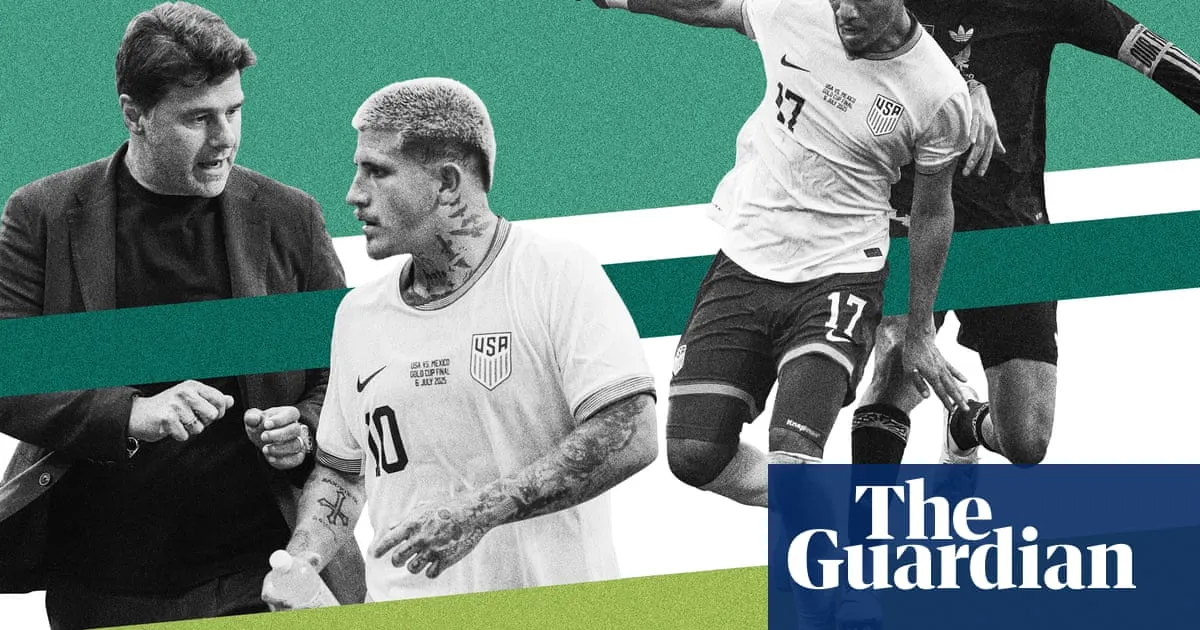
In a thrilling final at Houston’s NRG Stadium, México triumphed over the United States to win their second consecutive Concacaf Gold Cup trophy. The 2-1 victory not only marked a significant achievement for the Mexican national team but also solidified their status as the dominant force in Concacaf football.
The victory allows México to add another shiny accolade to their federation trophy case, placing the oddly angular Gold Cup next to their first Concacaf Nations League title, which they secured in March. Having already been at the pinnacle of Concacaf football prior to the tournament, this win further cements their place at the top.
For the US men's national team, the conclusion of the Gold Cup comes at a time of significant transition. The 2-1 defeat to México was the first time in six years that they fell to their arch-rivals. As they look towards the 2026 World Cup, the U.S. faces challenges in finalizing their roster with only 340 days left and no competitive games on the horizon.
The USMNT entered the Gold Cup on a low note, having suffered a disappointing run in the Nations League and recent losses to Turkey and Switzerland. With key players like Christian Pulisic, Weston McKennie, and Sergiño Dest absent, the expectations for the team had significantly diminished.
Despite these challenges, the USMNT displayed remarkable resilience throughout the Gold Cup, rediscovering the intensity and vigor that had been lacking for over a year. Head coach Mauricio Pochettino reflected on the pain of losing a trophy, yet emphasized the importance of maintaining a positive outlook. "We keep going; this is the way we want to build our journey to the World Cup," he stated.
During the tournament, Pochettino utilized a squad that resembled a B-team, yet they proved their mettle. He praised the players for creating an "unbelievable atmosphere" within the team, contrasting this with previous camps where player focus appeared to waver.
This Gold Cup also provided a platform for several young players to shine. Pochettino’s willingness to start less established players, such as Matt Freese in goal and Diego Luna in midfield, showcased a shift in the team’s dynamics. Luna, in particular, proved instrumental in the team's attacking play, earning recognition for his contributions.
Veteran defender Tim Ream noted the team's growth over the tournament, stating, "It was an opportunity to grow as players, to grow as people." This camaraderie and collective effort were essential as the USMNT faced a formidable Mexican squad.
In the final, the USMNT struggled against a well-coordinated Mexican side. Although they had moments of aggression, particularly in front of the Mexican goal, the overall control of the match belonged to El Tri. Pochettino acknowledged questionable officiating but recognized that México earned their title through skillful play and teamwork.
Despite the defeat, the USMNT showed promise. Players like Malik Tillman and Chris Richards emerged as key figures, indicating a bright future for the national team. As Pochettino contemplates his roster for the upcoming World Cup, there is a newfound competition among players vying for their positions.
The Gold Cup ultimately served as a crucial opportunity for the USMNT to reassess their depth and talent pool. With several key players absent, the tournament allowed emerging talents to showcase their skills and demonstrate their potential to make the World Cup roster.
Pochettino’s recent comments suggest that the returning veterans will not automatically reclaim their spots, indicating a shift in team dynamics as the competition for places heats up. This newfound intensity and depth could prove invaluable as the team prepares for the 2026 World Cup.
While the USMNT may have left the Gold Cup without the trophy, they gained invaluable experience and a fresh perspective on their roster's future. The upcoming months will be critical as they continue to build on this foundation, aiming for success on the world stage.